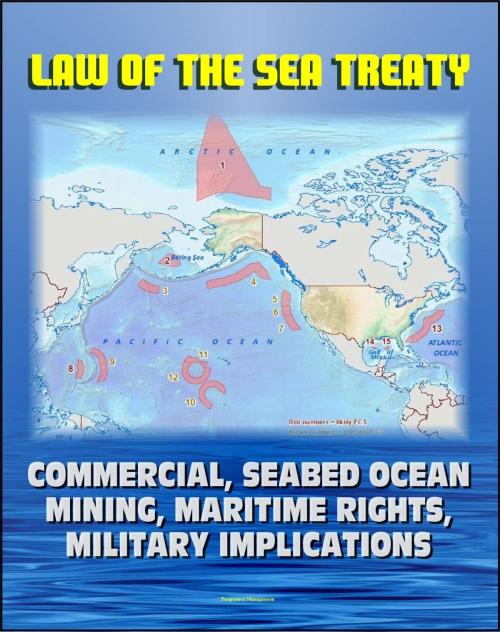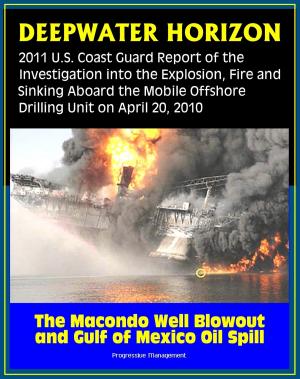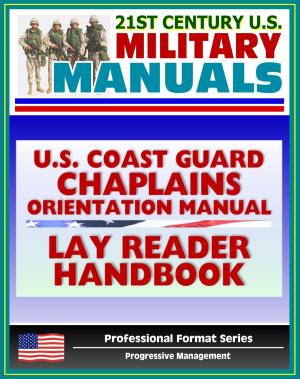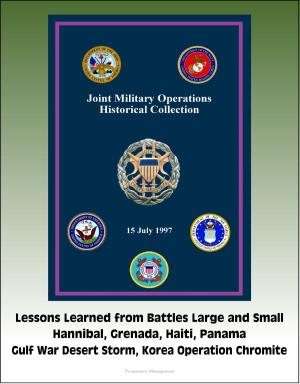21st Century Complete Guide to the Law of the Sea Treaty (LOST), U.N. Convention on the Law of the Sea (UNCLOS) - Commercial, Seabed Ocean Mining, Maritime Rights, and Military Implications
Nonfiction, Science & Nature, Science, Earth Sciences, Oceanography, Social & Cultural Studies, Political Science, International| Author: | Progressive Management | ISBN: | 9781476411361 |
| Publisher: | Progressive Management | Publication: | May 24, 2012 |
| Imprint: | Smashwords Edition | Language: | English |
| Author: | Progressive Management |
| ISBN: | 9781476411361 |
| Publisher: | Progressive Management |
| Publication: | May 24, 2012 |
| Imprint: | Smashwords Edition |
| Language: | English |
Featuring a large collection of up-to-date official documents and publications on the Law of the Sea Treaty (LOST), also known as the U.N. Convention on the Law of the Sea (UNCLOS), this unique ebook provides valuable information as the treaty is considered for ratification by the United States Senate in the coming months. The treaty text, analysis, and discussion as transmitted to the Senate is included, along with supporting documents, statements by government officials, and testimony by Obama Administration leaders such as Secretary of State Hillary Clinton and Defense Secretary Leon Panetta. Administration position papers discuss myths about the treaty and emphasize business community support for its ratification. In addition, there is coverage of the Extended Continental Shelf Project, which is working to establish the full extent of the U.S. continental shelf.
The Law of the Sea Convention sets forth a comprehensive framework governing uses of the oceans. Adopted in 1982, and substantially modified by the1994 Agreement relating to the deep seabed mining provisions, the Convention has been in effect since 1994. There are now 162 parties to the Convention, including almost all of the traditional allies of the United States. The 1995 UN Fish Stocks Agreement further implements certain provisions of the Convention. There are now 78 parties to this Agreement, including the United States.
Clinton's testimony stated: "Our economy depends on international trade, and the United States benefits from the global mobility that those navigational provisions accord to commercial ships of all nations. We have the world's second longest coastline, so the United States benefits greatly from the Convention's favorable provisions on offshore natural resources. The treaty accords sovereign rights over natural resources within a 200-mile exclusive economic zone. The United States is further advantaged by provisions in the treaty that allow the continental shelf - and oil and gas rights - to extend beyond 200 miles in certain areas. Off the north shore of Alaska, our continental shelf could extend 600 miles into the Arctic. American companies are equipped and ready to engage in deep seabed mining. But the United States can only take advantage of the Convention's provisions that accord security of tenure to mine sites in areas beyond national jurisdiction as a party to this treaty. The Convention, which was modified to meet U.S. demands, accords the United States a guaranteed seat on the key decision-making body. It is no wonder then that there is such a strong and wide-ranging coalition supporting U.S. accession. The U.S. military has consistently and unequivocally supported the Convention for its national security benefits. Affected U.S. industries, including shipping, fisheries, telecommunications, and energy, have consistently supported U.S. accession for its economic benefits. Non-governmental organizations concerned with the protection of natural resources have consistently supported U.S. accession. And both Republican and Democratic Presidents have supported U.S. accession. I have never seen another treaty with such intensive and broad support. Furthermore, no treaty has been as thoroughly scrutinized by the Senate as the Law of the Sea Convention. This Committee has twice examined it and sent it to the full Senate. Four other Committees held hearings in 2004, including the Senate Armed Services Committee, of which I was a member. In 2007, the Foreign Relations Committee held two additional hearings and another favorable vote. Every conceivable question has been asked and answered. As President George W. Bush said in 2007, joining the Convention will serve the national security interests of the United States, secure U.S. sovereign rights over extensive marine areas, promote U.S. interests in the health of the oceans, and give the United States a seat at the table where rights essential to our interests are debated and interpreted."
Featuring a large collection of up-to-date official documents and publications on the Law of the Sea Treaty (LOST), also known as the U.N. Convention on the Law of the Sea (UNCLOS), this unique ebook provides valuable information as the treaty is considered for ratification by the United States Senate in the coming months. The treaty text, analysis, and discussion as transmitted to the Senate is included, along with supporting documents, statements by government officials, and testimony by Obama Administration leaders such as Secretary of State Hillary Clinton and Defense Secretary Leon Panetta. Administration position papers discuss myths about the treaty and emphasize business community support for its ratification. In addition, there is coverage of the Extended Continental Shelf Project, which is working to establish the full extent of the U.S. continental shelf.
The Law of the Sea Convention sets forth a comprehensive framework governing uses of the oceans. Adopted in 1982, and substantially modified by the1994 Agreement relating to the deep seabed mining provisions, the Convention has been in effect since 1994. There are now 162 parties to the Convention, including almost all of the traditional allies of the United States. The 1995 UN Fish Stocks Agreement further implements certain provisions of the Convention. There are now 78 parties to this Agreement, including the United States.
Clinton's testimony stated: "Our economy depends on international trade, and the United States benefits from the global mobility that those navigational provisions accord to commercial ships of all nations. We have the world's second longest coastline, so the United States benefits greatly from the Convention's favorable provisions on offshore natural resources. The treaty accords sovereign rights over natural resources within a 200-mile exclusive economic zone. The United States is further advantaged by provisions in the treaty that allow the continental shelf - and oil and gas rights - to extend beyond 200 miles in certain areas. Off the north shore of Alaska, our continental shelf could extend 600 miles into the Arctic. American companies are equipped and ready to engage in deep seabed mining. But the United States can only take advantage of the Convention's provisions that accord security of tenure to mine sites in areas beyond national jurisdiction as a party to this treaty. The Convention, which was modified to meet U.S. demands, accords the United States a guaranteed seat on the key decision-making body. It is no wonder then that there is such a strong and wide-ranging coalition supporting U.S. accession. The U.S. military has consistently and unequivocally supported the Convention for its national security benefits. Affected U.S. industries, including shipping, fisheries, telecommunications, and energy, have consistently supported U.S. accession for its economic benefits. Non-governmental organizations concerned with the protection of natural resources have consistently supported U.S. accession. And both Republican and Democratic Presidents have supported U.S. accession. I have never seen another treaty with such intensive and broad support. Furthermore, no treaty has been as thoroughly scrutinized by the Senate as the Law of the Sea Convention. This Committee has twice examined it and sent it to the full Senate. Four other Committees held hearings in 2004, including the Senate Armed Services Committee, of which I was a member. In 2007, the Foreign Relations Committee held two additional hearings and another favorable vote. Every conceivable question has been asked and answered. As President George W. Bush said in 2007, joining the Convention will serve the national security interests of the United States, secure U.S. sovereign rights over extensive marine areas, promote U.S. interests in the health of the oceans, and give the United States a seat at the table where rights essential to our interests are debated and interpreted."















